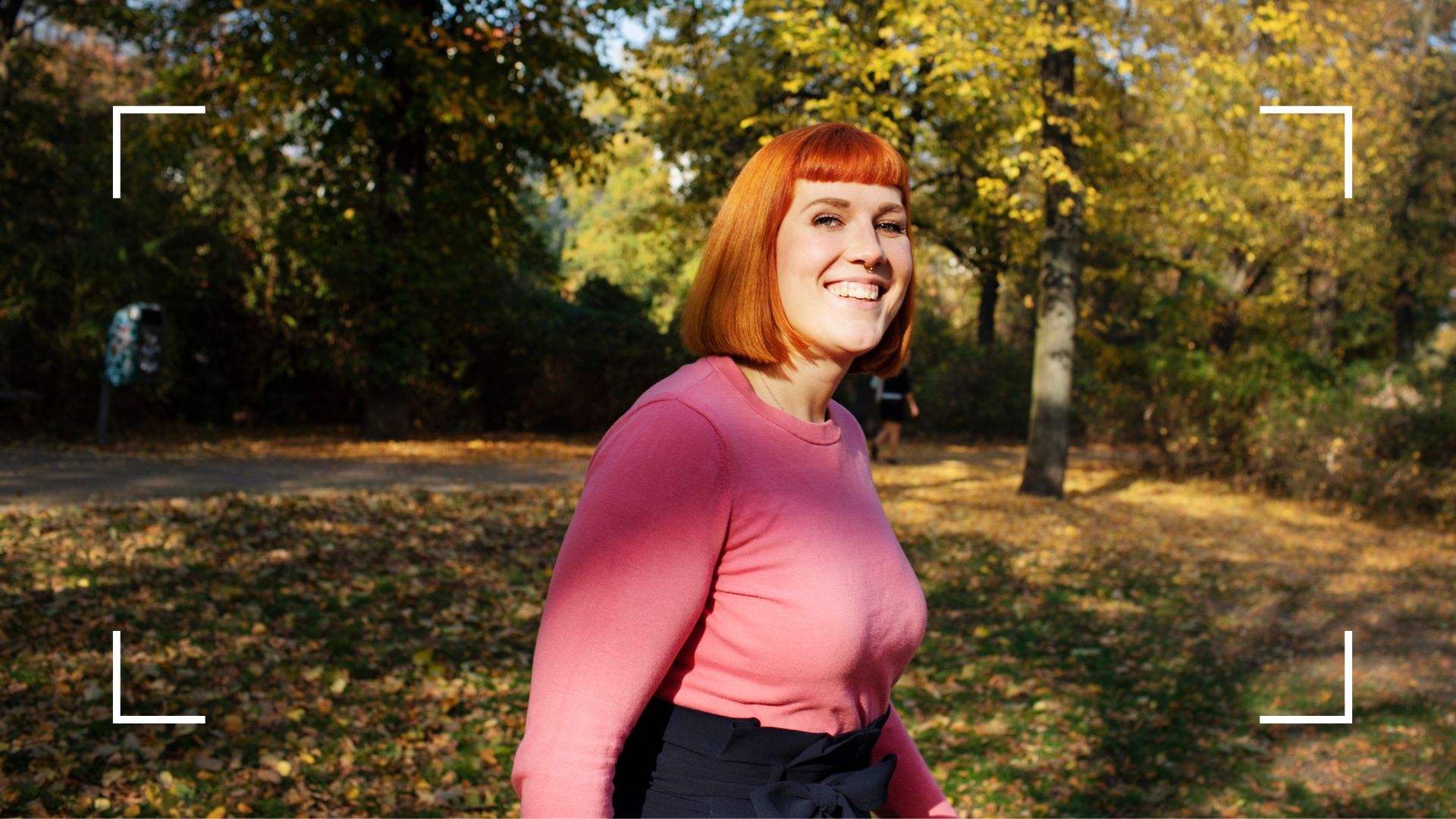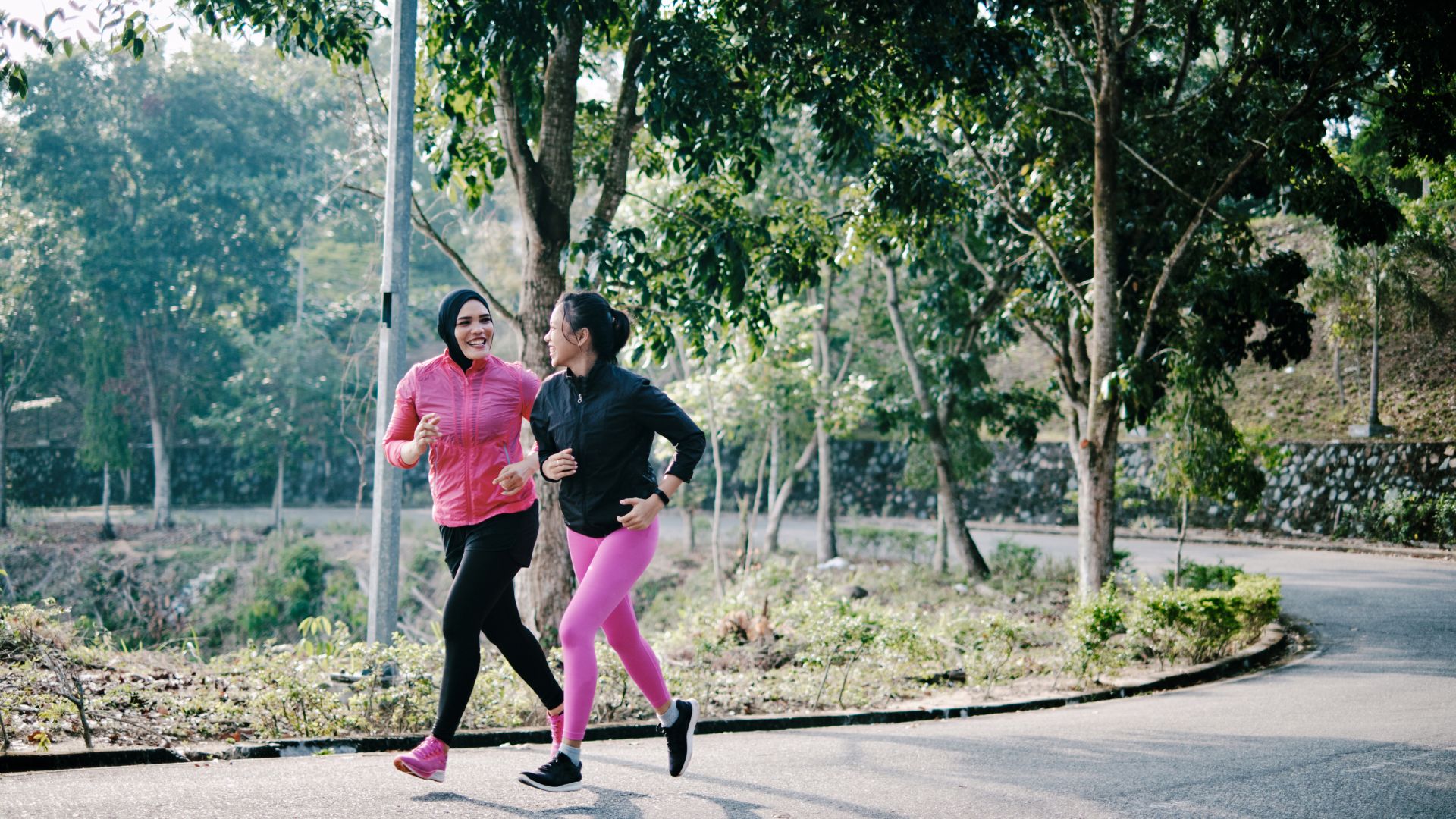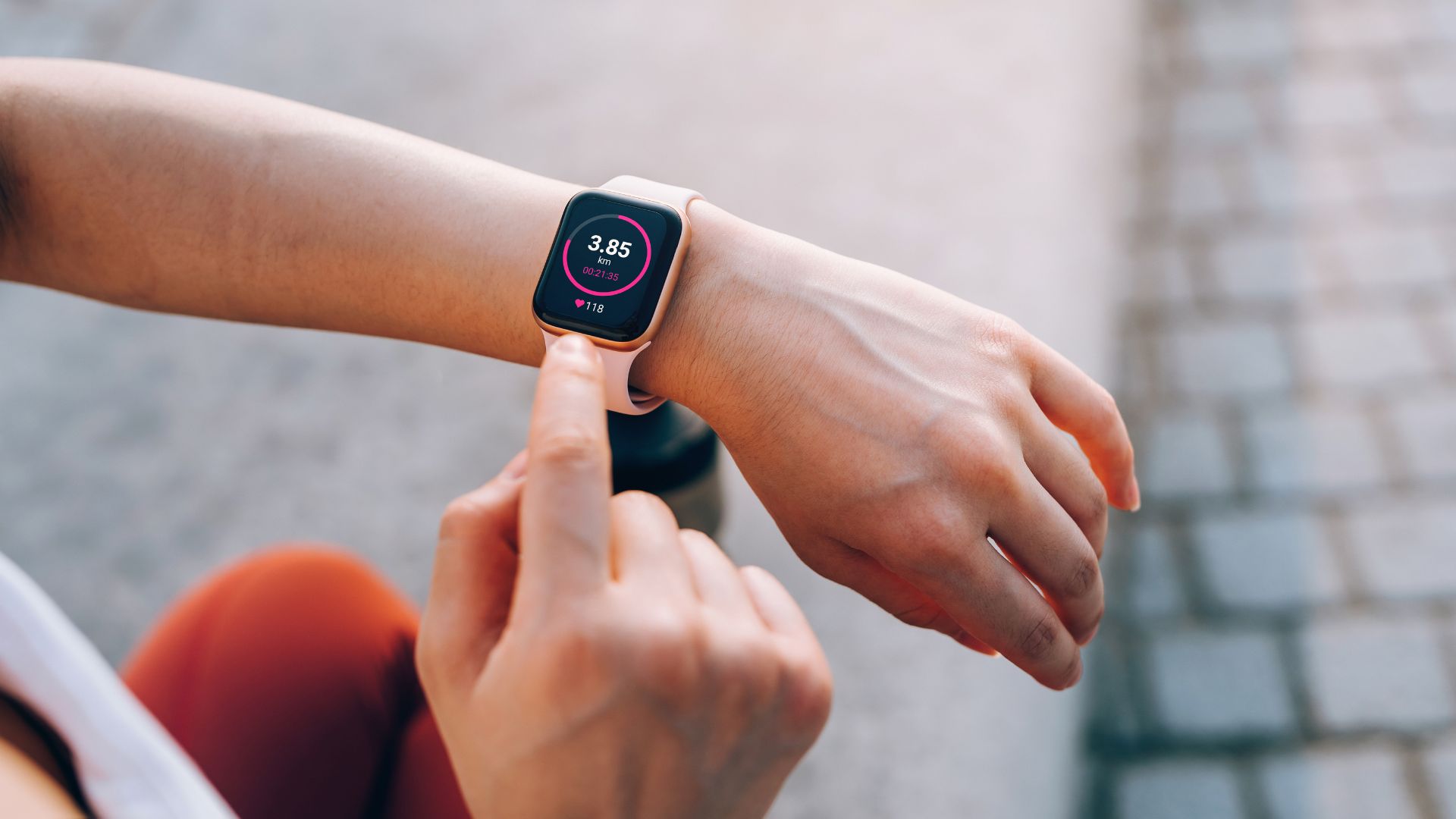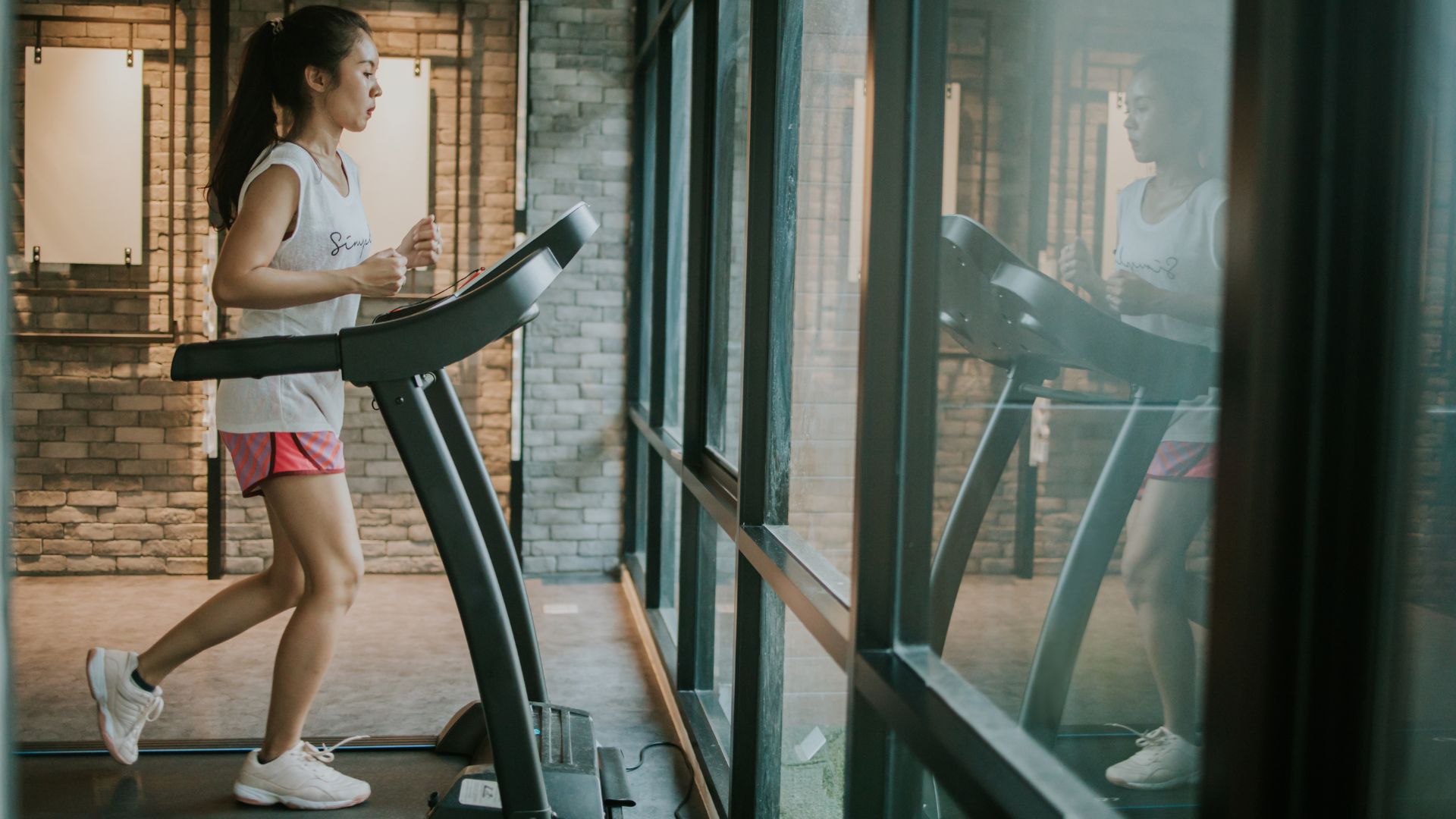Walking vs running - which is better for your health goals?
If you're balancing up the benefits of walking vs running, here's what personal trainers want you to know


Ali Horsfall
When it comes to the walking vs running argument, there's always hot debate from both sides. Walking is a low-impact exercise that you can do whenever and wherever, with whoever you like, while running is a faster-paced activity that requires a higher level of cardiovascular fitness. Doing either is better than doing nothing at all in many cases, but is one better than the other?
The simple answer is that both are great ways to exercise. As well as being free for the most part, both will tone up your body, boost mental wellbeing, aid weight loss if that's your goal, and improve general physical health. But there are some key differences, in particular, how many calories you are likely to burn, the impact on joints, and how often to add them into your training routine.
With the help of personal trainers and fitness experts, we delve into the walking vs running debate to uncover what you need to know to decide which activity is right for you - before you head out to buy the best walking shoes. Whether you're new to working out completely and looking to explore the benefits of running for women, or just looking to incorporate some more walking workouts into your sessions, this is what you need to know.
Walking vs running
1. For cardiovascular health
There's no difference between power walking versus running when it comes to improving our cardiovascular fitness, the American Heart Association has concluded, following multiple studies on the subject. Research in association with Berkeley National Laboratory studied 33,000 runners and 15,000 walkers and found that the risks of hypertension, hypercholesterolemia, diabetes and coronary heart disease were similarly reduced across both activities.
"With a healthier heart comes better circulation, a strengthened immune system, lower blood pressure, and you'll reduce your risk of heart disease, diabetes, and dementia," personal trainer Jenny Hutchins explains.
Just make sure, whatever activity of the two you choose, that you push yourself and you're doing the minimum amount of exercise you should do per week at least. "If you're trying to hit your moderate-intensity aerobic target, that means you can still hold a conversation while walking but have increased rate and depth of breathing," she adds. "If you want to meet the vigorous exercise requirements, you need to walk as if you're late for a meeting. It's not a stroll and not quite power walking. It's more of a purposeful stride."

2. For building muscle
Building muscle is all about making more protein than your body breaks down, which is why strength training is actually the optimal exercise for this. Between walking vs running though, there isn't much difference.
Sign up to our free daily email for the latest royal and entertainment news, interesting opinion, expert advice on styling and beauty trends, and no-nonsense guides to the health and wellness questions you want answered.
"The main muscle groups used during walking and running are broadly the same," explains Jane Hart, a personal trainer who specializes in aerobic fitness, including circuit training and other cardiovascular exercises. "You are primarily using your lower body muscles, such as the glutes, hamstrings, quads, hip adductors, and calves to move forward. You should also be engaging your core muscles whenever you're running or walking too, including the obliques."
However, she adds, pointing to research by Stanford University, the two activities do very slightly put pressure on different parts of the leg. "We take longer strides when running vs walking, so we're likely to put pressure on slightly different muscles," she says. "For instance, we tend to strike the ground with the heel of our foot when we walk as opposed to the balls of our feet when we run. This means that our hamstrings are used a little more predominantly in walking, while our thigh muscles (quadriceps) are used more in running."
There really isn't much difference in it though - especially if your walking workout uses some form of uphill training, such as the 12-3-30-workout.
3. For weight loss
When it comes to losing weight, to start with, it's all about energy balance - you need to be in a calorie deficit to lose weight, at least until you hit a plateau. How many calories do you eat compared to the number you burn? To lose between 1lb and 2lb per week, you need to be burning at least 500 calories more than you eat every day. This is ultimately done through regular bodily processes like sleeping, moving around, and breathing, exercising plays an important role. You can increase the number of calories burned walking in numerous ways to contribute to this, including interval walking or hill training.
"Running and walking will add to your daily energy expenditure, which is the number of calories you burn every day, and this will help to put you in a calorie deficit," explains celebrity personal trainer Aimee Victoria Long. "You need to be in this deficit otherwise you won't lose any weight, to begin with. It doesn't matter whether you start running for weight loss or choose to walk instead in terms of which one is better at burning calories. How many calories you burn walking for weight loss will depend on your weight, heart rate, fitness levels, and so on, and it will take up more of your time than running as we burn fewer calories per minute."
Although Long reminds us that this does vary from person to person, on average, "you can burn between 90 and 350 calories on a 30-minute walk, depending on the speed, intensity, and incline. And you can burn between 80 to 140 calories over a mile while running, which means on a 30-minute run you can burn between 280 and 520 calories."
Picking up one of the best Fitbits or a fitness tracker of another brand will be the most accessible way to find out your calorie burn on every walk or run you go on, however.

4. For better sleep
If you want to learn how to sleep better, going for a walk or practicing walking meditation could certainly be the way forward. Research from Eötvös Loránd University evaluated over 70 studies, looking into the differences in sleep quality between walkers and runners of all ages, and found that those who engaged in more moderate physical activity (walking) were more likely to sleep better than those who did the vigorous physical activity (running).
However, it's important to note that, contrary to popular belief, there was no difference in the sleep quality of those who went running. So while walking may ease you into a slumber a little easier, running won't actively affect your sleep.
5. For mental wellbeing
No amount of exercise will replace adequate professional mental help support when it's needed, but it's well established that exercise in all its forms does wonders for our mental health.
"Even just 30 minutes outside can offer a huge mood lift. As well as the endorphins that we produce during exercise, being outside in nature or surrounded by other people will also have a positive impact. For example, studies by the Boston University School of Medicine show that running for 30 minutes three times a week over several months has serious long-term mood-boosting effects thanks to the flood of endorphins, serotonin, and oxytocin. It even helped to alleviate the symptoms of depression. That's a big piece of workout motivation right there if you need it," says Long.
At the end of the day though, it all comes down to what you prefer. If the idea of learning how to start running fills you with dread then don't do it - go Nordic walking or for a stroll down the road instead. With all the benefits that walking and running have to offer, we can only experience them if we lace up our shoes and head out of the door - and you're much more likely to do this regularly if you enjoy the activity.
When is walking better than running?
Generally, as we've seen, walking can be just as good as running - but there's one exception to this rule. "Walking is a lot lower impact than running, meaning it's suitable for most people. If you have any joint issues or are overweight, then walking won't put unnecessary strain or load through your joints," says Long. "It's also going to be much better for anyone unable to run due to injuries or difficulty with their knees, hips, or back. Not only is walking more accessible as a sport as you don't need any special equipment, it is also generally safer than high-impact running for this reason."
A pair of the best hiking boots will certainly stand you in a good position if you're taking on the trails but if you're new to fitness, then walking may be a better option to begin with. "Walkers can build up from a slow, short walk to a more vigorous pace in time, incorporating inclines which will further challenge the legs," she says.
However, while walking may offer less impact on the joints than running, your body is still working hard. "If you're interested in losing weight, it may be beneficial for you to know that walking vs running calories-wise makes no difference," Long says. "If you burn 500 calories walking and 500 calories running, they're exactly the same."

When is running better than walking?
There's no denying that running is significantly more efficient than walking, just like running is more efficient in the cycling vs running debate. If your goal is to lose weight or rapidly increase your cardio fitness and you already have a good level of fitness to work with, then running may be a better option for you.
"Once you have built up a tolerance and adequate cardiovascular fitness levels you may be able to progress from walking to running," says Long. "Obviously with running there is a greater strain put on the body, especially cardiovascular-wise, so you are likely to see quicker gains in terms of fitness."
For the same reasons, running is likely to prove a more time-efficient way to burn calories. "Running generally burns calories faster," notes Sarah Campus, a personal trainer who specializes in cardio activities, and is the founder of LDN Mums Fitness. "We need to walk more frequently and for a greater distance in order to get near the energy burn of running."
Running does have its own individual perks as well though. "It's a fabulous exercise to improve cardiovascular fitness and strengthen muscles, but most importantly, it's high impact and weight-bearing, which means it's an excellent way to improve your bone health. Although, of course, if you have any issues with your tendons, joints, or bones, consult your doctor before going running," says Long.
Similarly, while both running and walking have strong links to improving our mental health, running does slightly have the edge. As discussed, reiterates Hart, the flood of endorphins and other happy brain chemicals like serotonin and oxytocin produce an effect called a 'runner's high' and this is what keeps people coming back for more."
How much walking and running should you do?
For any exercise, you want to keep it regular. "Spread exercise evenly over four to five days a week, reduce time spent sitting or lying down and break up long periods of not moving with some activity," suggests Hart. "As a general goal, I’d suggest aiming to do at least 30 minutes of physical activity a day and include a balanced mix of exercise types."
But if you can't manage that then even just a small amount of walking or running will make a big difference, science says. Findings from Public Health England showed that just ten minutes of brisk walking daily reduced the risk of early death by 15%.
"Technique is key to getting the most out of your walks though," warns Long. "This includes making sure you have good posture, look forward, stay strong through your core and roll your foot from heel to toe." If you want a bit more guidance, it could be worth joining a walking group. She adds that good footwear - including the best walking socks - is crucial as well.

Lauren is a freelance writer and editor with a decade of print and digital journalism experience. While she specialises in covering health and wellness topics - ranging from nutrition and fitness, to women’s health conditions and mental wellbeing - she has written across a diverse range of lifestyle topics, including fashion, beauty, homes, royals and travel.
In addition to writing for Woman & Home and sister title Homes & Gardens, Lauren's work has also been published by Women’s Health, The Times, Daily Telegraph, Elle, Cosmopolitan, The Guardian, Marie Claire, Body + Soul, Stylist, Glamour, Grazia, Red, Dazed Digital, Yahoo Life, The Sun’s Fabulous, Get The Gloss and Hello! among others.